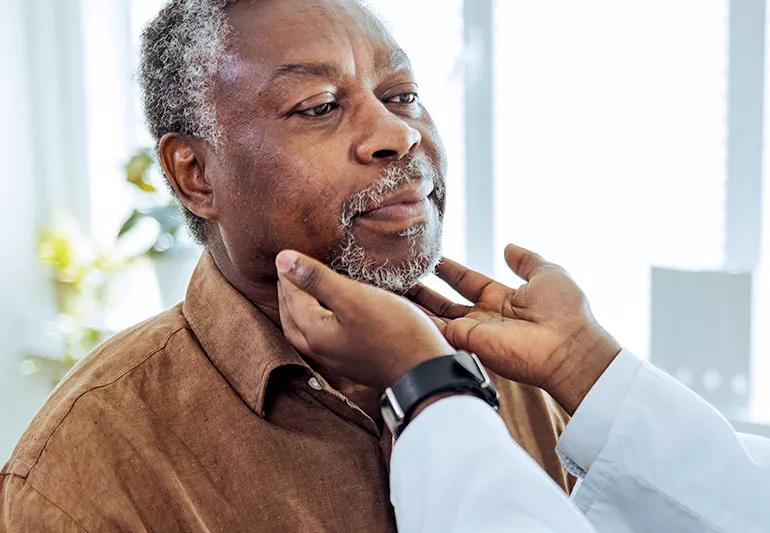Advertisement
Plus, how to tell if you have a hormonal imbalance and what to do about it

People can blame out-of-whack hormones for every medical problem under the sun. But how can you really tell if your hormone levels are off? There are 50 different types of hormones affecting your body’s systems. Endocrinologist Divya Yogi-Morren, MD, discusses the seven hormones you should know about, how to tell if you have a hormonal imbalance and what to do about it.
Advertisement
Cleveland Clinic is a non-profit academic medical center. Advertising on our site helps support our mission. We do not endorse non-Cleveland Clinic products or services. Policy
Hormones are chemical substances that your body makes in organs called glands. While there are glands throughout your body, the pea-sized pituitary gland at the base of your brain is the puppet master. “It’s responsible for making hormones that tell the other glands what hormones they should make,” explains Dr. Yogi-Morren.
For example, your pituitary gland makes:
When you have a hormonal imbalance, the gland making your hormones produces too much or not enough of that specific hormone. Dr. Yogi-Morren lists seven hormones that have VIP status in our bodies, what these hormones do and signs your body isn’t making the right amount.
Cortisol is a stress hormone. “Cortisol levels increase in response to stress, and it’s not just medical and physiological stress. Psychological stress can increase cortisol as well,” says Dr. Yogi-Morren.
Advertisement
Cortisol is a hormone jack-of-all-trades. It:
“A good night’s sleep is important for cortisol regulation,” she adds. “Cortisol is the get-up-and-go hormone, and there’s a circadian pattern to cortisol release”:
Signs of cortisol deficiency include:
Signs of too much cortisol include:
Estrogen is known as a sex hormone. It affects sexual development and function. Dr. Yogi-Morren says it’s also important for bone health.
When women and people assigned female at birth (AFAB) go through puberty, estrogen helps them develop secondary sexual characteristics (sex characteristics not directly related to reproduction), such as:
If you don’t have enough estrogen, you may enter menopause. Signs of menopause include:
Testosterone is another sex hormone. Like estrogen, it also helps keep bones healthy.
When men and people assigned male at birth go through puberty, testosterone helps them develop secondary sexual characteristics, such as:
Hypersexuality is a symptom of too much testosterone, but it’s rare. What’s more common, Dr. Yogi-Morren says, is testosterone levels that decline as men get older. Signs of low testosterone include:
Thyroid hormones control your body’s metabolism. They help transform the food we eat into energy.
Advertisement
Common symptoms of hypothyroidism, or underactive thyroid, include:
Common symptoms of hyperthyroidism, or overactive thyroid, include:
Growth hormone affects your height. Dr. Yogi-Morren says it’s most important during puberty, although “too much or too little in adults can also cause problems.”
Causes of growth hormone deficiencies include:
Signs of growth hormone deficiency include:
“Sometimes, for people with pituitary disease, we may correct all other hormonal imbalances except growth hormone because it’s rare that adults need it,” explains Dr. Yogi-Morren. “But when it’s the only thing left after symptoms don’t resolve, we replace it, and people may feel a lot better.”
Too much growth hormone in adults can lead to a condition called acromegaly, which can cause:
Advertisement
This important hormone comes from your pancreas and regulates blood sugar (glucose).
“It also allows the cells in our muscles, fat and liver to take up the glucose absorbed in the blood. The glucose then gives these cells energy,” says Dr. Yogi-Morren. “Insulin also affects other metabolic processes such as how the body uses fat and protein.”
A pancreas not meeting its insulin quota causes Type 1 diabetes. This condition most often occurs before adulthood but can develop at any time. Symptoms of Type 1 diabetes include:
In Type 2 diabetes, your pancreas makes enough insulin, but your body doesn’t respond to it like it should (insulin resistance). Signs of Type 2 diabetes include:
Melatonin is important during sleep and helps with your body’s internal clock. Exposure to daylight affects how much melatonin your body releases.
Your body makes less melatonin as you age. If you have sleep disturbances, it could be a sign that your body doesn’t make enough melatonin.
If you think you have a hormonal imbalance, Dr. Yogi-Morren advises seeing your healthcare provider. Discuss your symptoms and get your hormone levels checked. Treatments range from medications to surgery when a tumor causes a hormonal imbalance.
Advertisement
“Diabetes is a great example of a treatable hormonal imbalance. We have so many more treatment options than ever before.”
Learn more about our editorial process.
Advertisement

These chemicals, found in products like shampoo, shaving cream and processed foods, may affect your health

Check the plastic and personal care products in your home for these hormone-disrupting chemicals

Exercising more, eating healthier and managing weight can significantly improve insulin sensitivity

PCOS can cause skin problems, but birth control pills, hormonal medications and topicals can help

No diet can cure hypothyroidism or hyperthyroidism, but some foods and supplements can cause trouble

Foods high in selenium, like Brazil nuts, cottage cheese and some fish, can help support healthy thyroid function

Only take supplements recommended by your healthcare provider — others can worsen your condition

These simple sugars give us energy, but they can also raise blood sugar levels

If you’re feeling short of breath, sleep can be tough — propping yourself up or sleeping on your side may help

If you fear the unknown or find yourself needing reassurance often, you may identify with this attachment style

If you’re looking to boost your gut health, it’s better to get fiber from whole foods